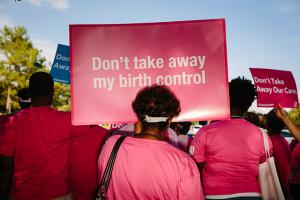Science and Women's Health Win
Roosevelt Institute
 The Supreme Court protected the right of women and families to make their own choices. And it did so by reminding us that facts are real. Science is real. Evidence is real. And it can’t be willfully ignored or tarnished or fabricated to advance anti-choice ideology that erodes the constitutional right to reproductive health care.
The Supreme Court protected the right of women and families to make their own choices. And it did so by reminding us that facts are real. Science is real. Evidence is real. And it can’t be willfully ignored or tarnished or fabricated to advance anti-choice ideology that erodes the constitutional right to reproductive health care.






Spread the word